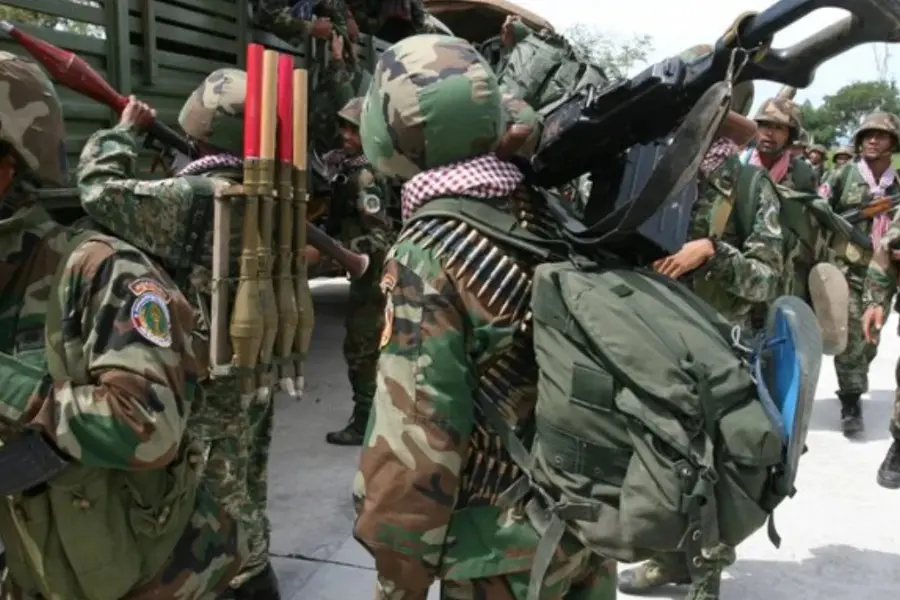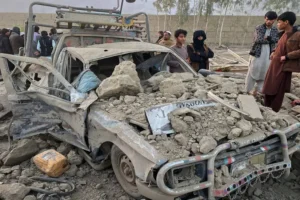Thailand Cambodia Border Clash 2025 Escalates Tensions

July 25, 2025 – Southeast Asia has been rocked by an alarming escalation of the long-lasting Thailand Cambodia border clash with military encounters that have left at least nine civilians dead, including an 8-year-old child, and another 14 were injured, on Thursday alone. The clashes are the most serious escalation since 2011 and have raised international concerns.
Breakdowns of Conflict in Multiple Areas
Military reports from both countries indicated that the violence broke out at six different points on the Thailand-Cambodia border. The military of Thailand said its air force bombed two Cambodian military bases with F-16 jets in response to Cambodia’s rocket attacks that killed civilians inside Thai territory.
In response to the bombing, the Thai Interior Ministry ordered the evacuation of residents in four border provinces, and the Thai embassy in Phnom Penh is now advising their citizens to leave Cambodia immediately. The Cambodian Minister of Defense stated that heavy weapons and the incursion of foreign territory by mass bombs is a breach of international law by Thailand.
Deteriorating Diplomatic Relations Quickly
Diplomatic ties between the two countries have rapidly deteriorated. After a landmine resulted in a blast which wounded five Thai soldiers on Wednesday, Thailand expelled Cambodia’s ambassador and pulled its envoy from Phnom Penh. In retaliation, Cambodia pulled its diplomats and requested that Thailand do the same in a further escalation of tension.
In a significant call to the United Nations, Prime Minister Hun Manet of Cambodia described Thailand’s actions as “grave serious aggressions” and requested an urgent meeting of the United Nations Security Council.
Military Capabilities and Responses in the Region
Military analysts have highlighted that there is a considerable difference in capability between the two nations. Whereas Thailand has advanced air devices, Cambodia has no existing fighter jets, and has instead KSI-C air defense systems imported from China. As it stands, two independent countries engaging in war would be alarming, and any continuation and escalation would raise the specter of fighting in the region.
Both China and the United States issued warnings to their citizens regarding the increasing conflict, and Beijing stated they were “extremely concerned” urging moderation on both sides.
Economic Losses and Effects on the Region
The regional economy has begun to feel effects from the border conflict already. After reports on the conflict, Thailand’s baht was down 0.4% to 32.285 to the dollar, with the stock market down 1%. Both countries depend on trade routes and border crossings that the violence threatens to disrupt for their economies.
Experts warn that if the violence continues, it may threaten the region’s tenuous post-COVID recovery. “The dispute is escalating quickly. If not curbed, it could escalate into a bigger conflict,” said Jayant Menon, a senior fellow at the ISEAS-Yusof Ishak Institute in Singapore.
Where does the dispute come from?
Most of the tension has its origins in the vagueness of the Franco-Siamese agreements from the early 20th century, which do not clearly identify the borders between Siam (now Thailand) and French Indochina (Cambodia). The most recent serious flash-point in 2011 when both countries agreed to clash over territory as it relates to an ancient temple – now a UNESCO World Heritage Site – at Preah Vihear, over which both made territorial claims.
Despite attempts to ease tensions in recent years, conflicts have broken out. But the recent incident represents the most serious incident for over a decade and rapid deteriotation of civil and security relations.
The political fallout in Thailand
The crisis has led to even more instability in the political situation in Thailand, with the Constitutional Court suspending Prime Minister Paetongtarn Shinawatra for ethical reasons related to her management of the crisis.
However, her regrettable now-public discussion with former Cambodian leader Hun Sen, which was supposed to diffuse the crisis, spurred nationwide outrage and protests demanding she leave office. She now has until July 31 to file a defense. Political instability may limit Thailand’s ability to pursue diplomacy in the current conflict.
World Court of Law
Cambodia has filed a case in the International Court of Justice (ICJ) to resolve their bilateral dispute over four contested territories while Thailand has rejected the ICJ’s authority. Furthermore, Bangkok has chosen to insist on bilateral negotiations at the same time as it seeks to have the UN’s Anti-Personnel Mine Ban Convention reaffirm its support for the recent safety crisis following a Thai soldier having his leg busted off by a landmine.
Looking Ahead
The border dispute between Thailand and Cambodia is becoming a progressively heightened, increasingly complex problem based on regional diplomacy, whilst all the world is watching very closely. There are more casualties and economic implications continue to rise, creating a greater pressure on both sides to deescalate.
Watch for recent news updates related to the evolving story and any significant developments in this tumultuous region.







4tivej
t4dm9d
I don’t think the title of your article matches the content lol. Just kidding, mainly because I had some doubts after reading the article.